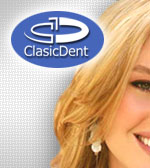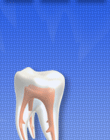Chewing gum is very popular among the population. Advertising, widespread agitation and a big range promote it, and you know that the acid-alkaline balance is restored.
By the way, chewing gum has a long history. In India , it was bark of branches, in Central Asia – pomegranate peel, in Russia – pine resin.
And once an American mixed some resins with sapodilly juice, melted all this, got rid of impurities, added powdered sugar and mint oil, rolled a thin layer and so made the
|
|
 |
world's first chewing gum. Since then adults and children chew it, and dentists from advertising approve its actions. And what do dentists think about chewing gum?
Firstly, we need to remember that even qualitative chewing gum of well-known companies will not substitute for oral hygiene. Do not replace morning cleaning teeth for
chewing gum and you should tell your child about this, who certainly likes delicious dainties and can not tolerate to brush teeth.
 |
|
Secondly, chewing gum is useful only for 10 minutes after eating.
Then chewing is not only useless, but in some cases – detrimental.
It concerns children who get chewing gum from their mouth and then begin to ruminate it again or give to chew each other.
All these violations of hygiene rules can lead to the development of stomatitis.
|
Never chew the cud on an empty stomach!
The chewing produces gastric juice, and the lack of food leads to the irritation of the stomach walls. Consequently you will have gastritis or gastroduodenitis. If you already have such diseases then the use of chewing gum is contra-indicated.
If a child has a predisposition to food allergic reactions, then pay attention to the fact that the chewing gum composition does not include flavors and dyes.
The chewing gum can affect child's speech. If he has bubble gum in his mouth, it prevents to pronounce sounds in a proper way. And, eventually, it can become a habit.
In addition, chewing gum keeps masticatory muscles in a constant tonus and because of it you can gnash your teeth at night.
|








